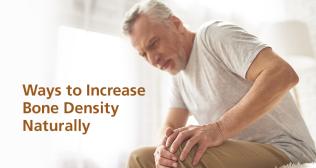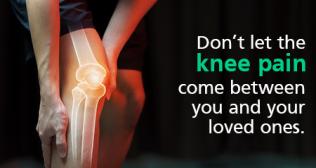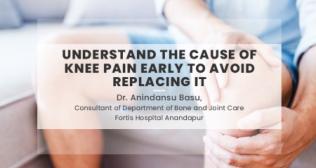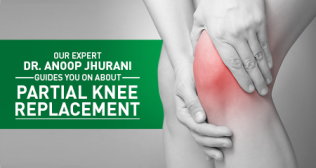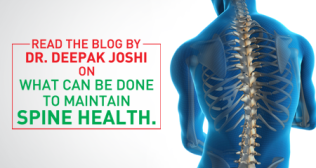
Orthopaedics
Exercise To Avoid Knee Pain
Exercise To Avoid Knee Pain Jan 02, 2014
 Our pain threshold goes down during the winter months as the nerve endings get hypersensitive. Those suffering from arthritis thus need an increased dosage to get relief from the excruciating pains. Surgical procedures are also required at times. The bones and joints are most affected during winters.
PREVENTION
Most people with knee pain, especially with arthritis, have the misconception that walking will wear out their knee further. They couldn't be more wrong. It is by flexing the knee more that you get better blood circulation going, increase the joint nutrition and make the muscles and bones stronger. If knee pain has not set in yet this winter, it is advisable that you set time apart from today itself, to prevent it. Just ensure to get into a regular activity like cycling, swimming or walking on a flat surface for 40 minutes to an hour everyday.
If you start these activities before the onset of winter, you would be giving your knees a good
chance. Just in case the knee pain has already set in, take a pain killer and start with the above mentioned activities. There are some activities that you should not do; such as climbing up and down the steps, getting up from a very low seating position (squatting) and heavy physical activities. It is advisable to wait through the winter, follow the exercise regime mentioned earlier and consider the surgical option only if pain persists during the summer.
SEEING A DOCTOR
Your orthopaedician would take an x-ray of your knees. She/he would be able to assess the existing damage with this and advise you on the process ahead. Along with medication, your doctor may advise you a course of physiotherapy. This will strengthen your muscles, increase the range of movement of your affected joint and make your bones stronger.
OUR KNEE DOCTORS MAY HELP YOUR KNEE WITH...
? Basic and thorough knee diagnosis.
? Advanced knee checks and arthroscopy (more accurate and therapeutic).
? Effective treatment and knee replacement surgeries, if required.
? Post treatment or the rehab stage is critical in managing knee pain. A rehab specialist will help maximize benefits of any surgical intervention performed.
? Consultation with a specialized nutritionist, rehab specialist and orthopaedician.
? The physiotherapist will also give the patient hands-on training to take care of his knee.
? The stem cell research division will also look into the possibility of developing and injecting
the patient's own healthy cartilage back into her/his knee.
Our pain threshold goes down during the winter months as the nerve endings get hypersensitive. Those suffering from arthritis thus need an increased dosage to get relief from the excruciating pains. Surgical procedures are also required at times. The bones and joints are most affected during winters.
PREVENTION
Most people with knee pain, especially with arthritis, have the misconception that walking will wear out their knee further. They couldn't be more wrong. It is by flexing the knee more that you get better blood circulation going, increase the joint nutrition and make the muscles and bones stronger. If knee pain has not set in yet this winter, it is advisable that you set time apart from today itself, to prevent it. Just ensure to get into a regular activity like cycling, swimming or walking on a flat surface for 40 minutes to an hour everyday.
If you start these activities before the onset of winter, you would be giving your knees a good
chance. Just in case the knee pain has already set in, take a pain killer and start with the above mentioned activities. There are some activities that you should not do; such as climbing up and down the steps, getting up from a very low seating position (squatting) and heavy physical activities. It is advisable to wait through the winter, follow the exercise regime mentioned earlier and consider the surgical option only if pain persists during the summer.
SEEING A DOCTOR
Your orthopaedician would take an x-ray of your knees. She/he would be able to assess the existing damage with this and advise you on the process ahead. Along with medication, your doctor may advise you a course of physiotherapy. This will strengthen your muscles, increase the range of movement of your affected joint and make your bones stronger.
OUR KNEE DOCTORS MAY HELP YOUR KNEE WITH...
? Basic and thorough knee diagnosis.
? Advanced knee checks and arthroscopy (more accurate and therapeutic).
? Effective treatment and knee replacement surgeries, if required.
? Post treatment or the rehab stage is critical in managing knee pain. A rehab specialist will help maximize benefits of any surgical intervention performed.
? Consultation with a specialized nutritionist, rehab specialist and orthopaedician.
? The physiotherapist will also give the patient hands-on training to take care of his knee.
? The stem cell research division will also look into the possibility of developing and injecting
the patient's own healthy cartilage back into her/his knee. 






